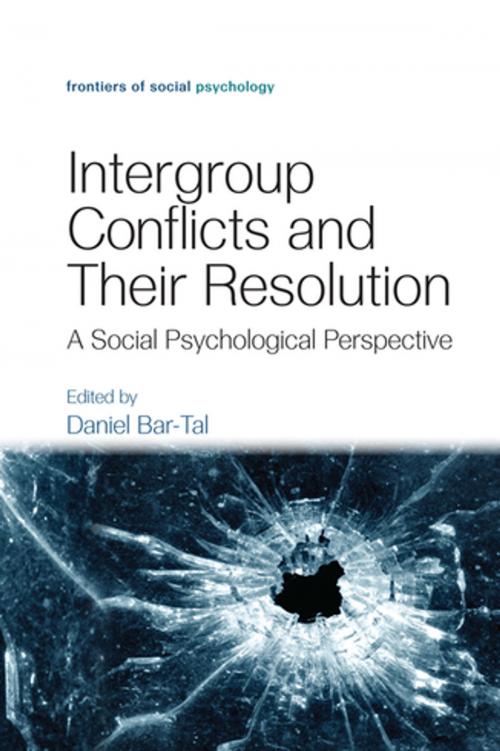Intergroup Conflicts and Their Resolution
A Social Psychological Perspective
Nonfiction, Health & Well Being, Psychology, Social Psychology| Author: | ISBN: | 9781136847899 | |
| Publisher: | Taylor and Francis | Publication: | January 26, 2011 |
| Imprint: | Psychology Press | Language: | English |
| Author: | |
| ISBN: | 9781136847899 |
| Publisher: | Taylor and Francis |
| Publication: | January 26, 2011 |
| Imprint: | Psychology Press |
| Language: | English |
This book provides a framework that sheds an illuminating light into the psyche of people involved in macro-level destructive intergroup conflicts, involving societies and ethnic groups, that take place continuously in various parts of the globe. It focuses on the socio-psychological repertoire that evolves in these societies or groups and which plays a determinative role in its dynamics.
Specifically, this repertoire influences the nature of social reality about the conflict that society members construct, the involvement with and mobilization of society members for the conflict, the sense of solidarity and unity they experience, the conformity expected from society members, the pressure exerted on leaders, and the direction of action taken by the leadership.
In addition, the book describes the changes in the socio-psychological repertoire that are necessary to ignite the peace process. Finally, it elaborates on the nature and the processes of peace building, including conflict resolution and reconciliation.
The proposed conception assumes that although each conflict has its unique context and characteristics, the socio-psychological foundations and dynamics are similar. It offers a holistic and comprehensive outlook on the dynamics that characterize each stage and aspect of intractable conflicts. Each chapter systematically elucidates a particular part of the cycle, describing the theoretical frameworks and concepts, as well as presenting empirical data that was accumulated.
The volume is an important contribution for all those who study intergroup conflicts and want to understand their dynamics. In addition, the book will interest the many people attempting to settle conflicts peacefully and who need knowledge about the socio-psychological vectors that influence their course and resolution.
This book provides a framework that sheds an illuminating light into the psyche of people involved in macro-level destructive intergroup conflicts, involving societies and ethnic groups, that take place continuously in various parts of the globe. It focuses on the socio-psychological repertoire that evolves in these societies or groups and which plays a determinative role in its dynamics.
Specifically, this repertoire influences the nature of social reality about the conflict that society members construct, the involvement with and mobilization of society members for the conflict, the sense of solidarity and unity they experience, the conformity expected from society members, the pressure exerted on leaders, and the direction of action taken by the leadership.
In addition, the book describes the changes in the socio-psychological repertoire that are necessary to ignite the peace process. Finally, it elaborates on the nature and the processes of peace building, including conflict resolution and reconciliation.
The proposed conception assumes that although each conflict has its unique context and characteristics, the socio-psychological foundations and dynamics are similar. It offers a holistic and comprehensive outlook on the dynamics that characterize each stage and aspect of intractable conflicts. Each chapter systematically elucidates a particular part of the cycle, describing the theoretical frameworks and concepts, as well as presenting empirical data that was accumulated.
The volume is an important contribution for all those who study intergroup conflicts and want to understand their dynamics. In addition, the book will interest the many people attempting to settle conflicts peacefully and who need knowledge about the socio-psychological vectors that influence their course and resolution.















